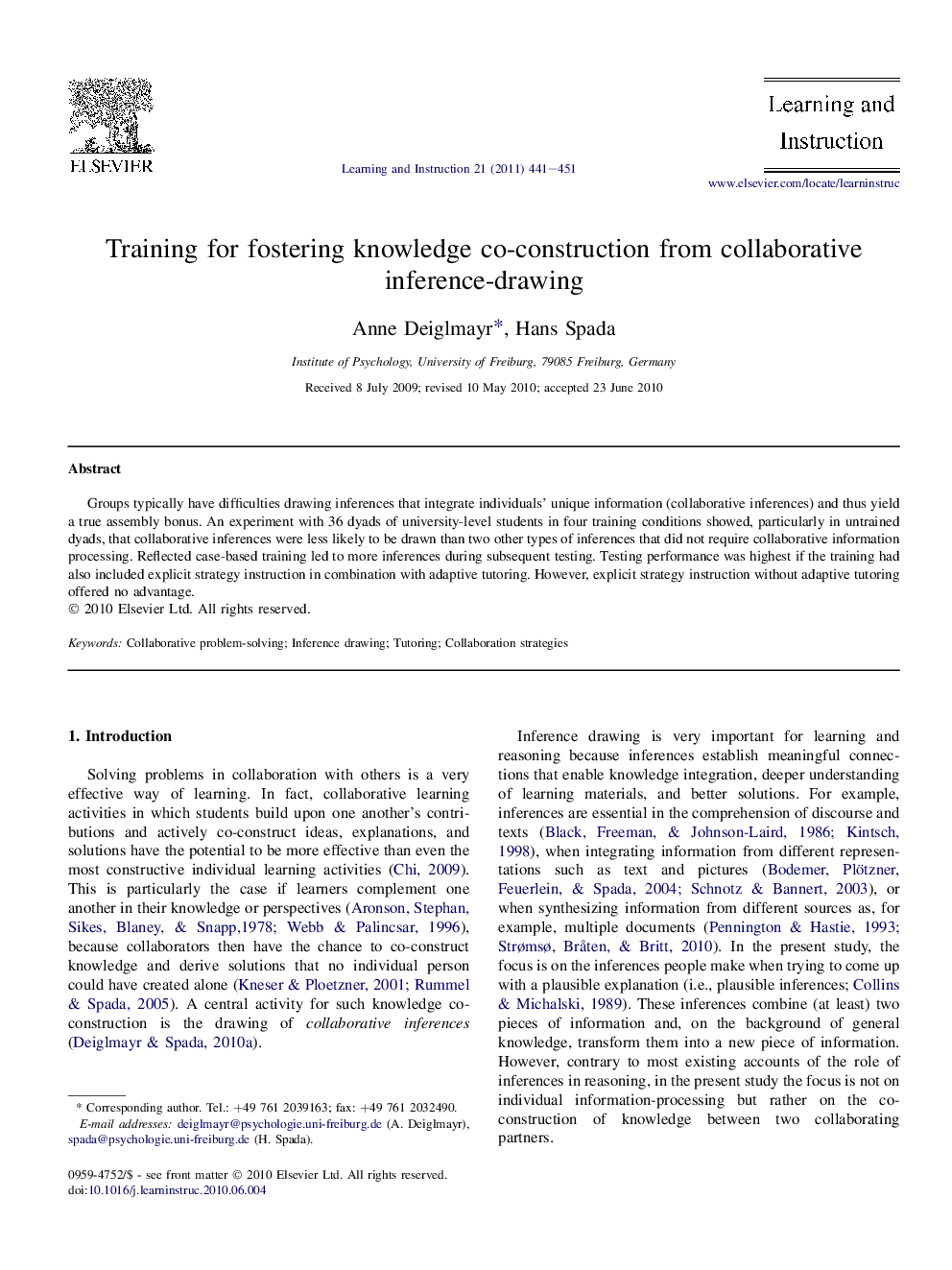| Article ID | Journal | Published Year | Pages | File Type |
|---|---|---|---|---|
| 365806 | Learning and Instruction | 2011 | 11 Pages |
Groups typically have difficulties drawing inferences that integrate individuals’ unique information (collaborative inferences) and thus yield a true assembly bonus. An experiment with 36 dyads of university-level students in four training conditions showed, particularly in untrained dyads, that collaborative inferences were less likely to be drawn than two other types of inferences that did not require collaborative information processing. Reflected case-based training led to more inferences during subsequent testing. Testing performance was highest if the training had also included explicit strategy instruction in combination with adaptive tutoring. However, explicit strategy instruction without adaptive tutoring offered no advantage.
Research highlights► Collaborative inferences yield true synergy effects, but are often not drawn. ► Reflected, case-based training increased collaborative inference-drawing. ► No benefits from additional, explicit strategy instruction. ► Adaptive tutoring during training substantially increased training effectiveness.
